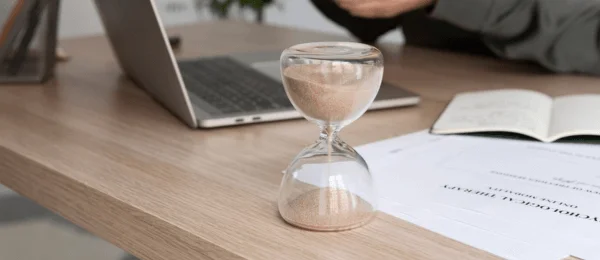
Depression Treatment Lancaster
Resilient Recovery is a luxury rehab in Lancaster, California. We treat a wide range of addictions and co-occurring mental illnesses. Our staff understands addiction’s impact on a person, and we aim to help you get your life back on track.
What is Depression?
Depression is a mental health condition that affects millions of people worldwide. It is characterized primarily by feelings of deep sadness. People with depression can feel hopeless and empty inside. They will also struggle with negative thoughts.
Depression can also cause someone to lose interest in things that they typically enjoy. It can also lead to changes in appetite and sleep patterns and make it difficult for people to concentrate.
The effects of depression can also extend past the person who suffers from it. Depression can cause someone to withdraw socially, which can strain interpersonal relationships.
The cognitive impairments that are often symptomatic of depression can also cause professional or academic setbacks. Severe depression can cause substance abuse, self-harm, and even suicidal ideation.
It has to be said that mental disorders such as depression are not weaknesses or character flaws. Depression is simply a disease that can be caused by trauma, genetics, and environmental factors, with some research suggesting that being the month of a person’s birth can make them vulnerable to depression. It is a medical condition that needs to be treated by a medical professional such as a therapist.
The Different Types of Depression
Depression is a general term that is used to describe a mental illness. However, it is important to note that there are different kinds of depression, and their symptoms can vary. Some of the common types of depression include:
Major Depressive Disorder (MDD)
Also known as clinical depression, MDD is the most commonly diagnosed form of depression. People who have MDD will experience persistent feelings of sadness, hopelessness, and emptiness. They will lose interest in their daily activities. These symptoms typically have to last for around two weeks to meet the diagnostic criteria for MDD.

Persistent Depressive Disorder (PDD)
Also known as dysthymia or high-functioning depression, people who have PDD will have symptoms that are similar to MDD. However, these symptoms can last for years and will not be as severe as those of MDD.
Individuals with PDD can often go through their daily routines with no issues despite their symptoms. However, PDD can still have a profound impact on the quality of a person’s life if left untreated.
Seasonal Affective Disorder (SAD)
SAD is a subtype of depression wherein a person experiences symptoms during the fall and winter months when there is generally less sunlight. It is believed that these changes in light exposure can disrupt the body’s circadian rhythm and affect neurotransmitter levels in the brain.
Postpartum Depression (PPD)
PPD is a type of depression that mothers experience within a year after giving birth. It is believed that hormonal changes that come with pregnancy and childbirth, as well as sleep deprivation that comes with caring for a newborn, can cause PPD.
Premenstrual Dysphoric Disorder (PMDD)
PMDD is a severe form of Premenstrual Syndrome (PMS) that occurs in the days leading up to menstruation. Symptoms typically subside once menstruation begins.
Psychotic Depression
This is a severe form of depression wherein the typical depression symptoms are more severe. Individuals with psychotic depression can experience disruptions in perception and hallucinate. They can also become delusional.
Manic Depression
Otherwise known as Bipolar Disorder, this is often treated as a separate illness entirely. Bipolar disorder is characterized by intense mood swings, and bipolar individuals can experience manic and depressive episodes. Depressive episodes will often have symptoms similar to those of MDD and the treatment options can overlap.

Depression and Co-occurring Substance Use
Depression can have a bidirectional relationship with substance abuse. This is because many individuals with depression can often turn to drugs or alcohol as a means of self-medicating and coping with their symptoms. Depression can also impair a person’s judgment, making them more prone to risky behaviors such as indulging in illicit substances.
Depression often coexists with other mental health disorders such as anxiety, Post-traumatic Stress Disorder (PTSD), and personality disorders. Individuals with depression and co-occurring substance abuse can have more severe symptoms, and they may not be as responsive to treatment.
Individuals who have depression and a co-occurring substance abuse disorder must seek comprehensive treatment to address both. This is the aim of Dual Diagnosis Programs such as ours.
Our Depression Treatment Program
Our depression treatment program is built to address the individual needs of each patient. We use evidence-based modalities to help our patients in their recovery journey so they can lead fulfilling lives. Here’s a brief overview of how we treat depression:
Cognitive Behavioral Therapy (CBT)
CBT is a type of therapy that seeks to examine the relationship between thoughts, feelings, and actions. It aims to identify negative thought patterns and change them. This can help people identify what triggers their depressive symptoms and what led them to substance abuse in the first place.
Individual Therapy
One-on-one sessions with a therapist give patients a safe space to open up about their feelings, both positive and negative, and identify their triggers for depression and what led them to addiction.
Group Therapy
Group therapy sessions can serve two roles in treating mental illness and substance addiction. First, it can show patients that they are not alone in their struggles and that there are people from whom they can learn.
The second is that the connections made during these group sessions can become part of an individual’s support system and give them strength and encouragement as they heal.
Family Therapy
Depression and substance abuse can have a major impact on personal relationships. This type of therapy aims to help repair the damage done to these relationships as well as make loved ones part of the healing process by giving them the guidance they need to be able to support an addict’s recovery.

Holistic Therapy
We also employ a holistic approach to treat not just the mind and the body but the spirit as well. Activities like yoga and meditation can give an individual a healthy way to cope with stress, which can be a trigger for both depression and substance use.
Counseling
Counseling sessions give patients a wealth of support and tools to help them through the recovery process once they complete inpatient rehab with us.
Why Come to Us?
There’s a wealth of treatment centers for addiction and mental health in California. Many of them will have fully qualified staff. But not many of them will have a staff that is made of recovering alcoholics and addicts.
Many other recovery centers will understand how hard recovery is in theory. However, many staff members have been through the recovery process, and they understand better than most how hard recovery is to achieve.
Let Us Help You With Your Depression
By themselves, the symptoms of depression can have a profound impact on a person’s life. When paired with an addiction, recovery can seem impossible. However, wellness is possible, and if you’re experiencing depression and addiction at once, we can help you.
Contact us now, and we will get you started on the road to recovery at our facility in Lancaster.
